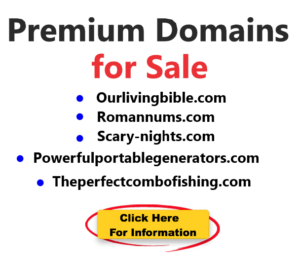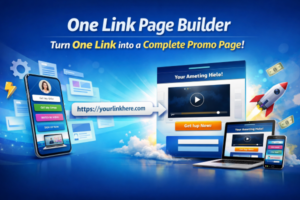What it is
Unicorn Platform is a no‑code AI website builder designed for “busy founders” who want to create landing pages, SaaS or app websites, directories, blogs, personal pages — without hiring a developer or designer.
Key features
Here are some of the standout features:
-
AI‑assisted website building: Use prompts to create or modify a website.
-
100% no code required, though custom code is optional if you need it.
-
Pre‑made section templates or full site templates so you don’t need to design everything yourself.
-
Responsive design out of the box (works on different screen sizes) and the ability to accept payments via Stripe.
-
Focus on startups, solo entrepreneurs, hackers.
-
They state that over 100,000 websites are built using the platform.
Why it might be a good choice
-
Speed: If you want to launch quickly with minimal overhead, a no‑code builder like this helps bypass design/development time.
-
Simplicity: The UI is built for non‑developers, which lowers the barrier to entry.
-
Focused on product & landing pages: This is great if you’re launching a SaaS, an app, or a “single page” style website rather than a full blown content‑heavy site (though blogs are supported).
-
Cost efficiency: Using a builder means you may avoid hiring designers/devs initially; also many builders have free or low‑cost tiers (Unicorn says “Get free lifetime plan” on their homepage).
Potential drawbacks / things to consider
-
Customization limits: As with many no‑code builders, while you get speed and simplicity, you might hit walls if you need very custom design, advanced CSS/JS or deep backend integrations.
-
Scalability: If your site grows into a complex CMS with many custom functions, you may outgrow the builder and need migration later.
-
SEO, performance, ownership: Always check how well the platform supports SEO best practices, page‑speed, custom meta tags, and whether you fully own your site/content and can export/migrate if needed.
-
Pricing & features: “Free lifetime plan” sounds appealing, but often free tiers have limitations (branding, fewer pages, limited features). Need to check the paid tiers and what you get.
-
Support & ecosystem: Check their support responsiveness, integrations (analytics, CRM, payment, forms), and how active the platform is in terms of updates.
Use cases — Who it’s for
-
A startup founder who has minimal web presence and wants to launch a “coming soon” or “MVP product” landing page quickly.
-
An app developer who wants a marketing website for their mobile or web application without coding a site from scratch.
-
A solo entrepreneur, side‑hustler or “technical non‑designer” who wants to build a clean website, blog, or directory.
-
Someone who wants to collect payments/recurring subscriptions (via Stripe) and doesn’t need a heavy e‑commerce platform.
Use cases — When you might choose something else
-
If you run a large content site (hundreds/thousands of posts) and need a full CMS with complex taxonomies, then a platform like WordPress or a self‑hosted solution may be more appropriate.
-
If you need advanced custom backend logic, high‑traffic scaling, custom database integrations, etc., you may prefer a framework or more developer‑centric platform.
-
If you have strict branding/custom design requirements and someone on the team who is comfortable coding, you may prefer a hand‑coded or more flexible builder.
🚀 Comparison: Unicorn Platform vs Webflow vs Carrd vs Wix
| Feature | Unicorn Platform | Webflow | Carrd | Wix |
|---|---|---|---|---|
| Ease of Use | ⭐⭐⭐⭐ (AI-assisted, no-code) | ⭐⭐⭐ (steep learning curve) | ⭐⭐⭐⭐ (very easy, simple UI) | ⭐⭐⭐ (drag-and-drop, but cluttered) |
| Best For | SaaS, startups, landing pages | Designers, CMS-heavy sites | Simple landing pages, personal sites | Small businesses, general use |
| Design Flexibility | ⭐⭐⭐ (clean, simple sections) | ⭐⭐⭐⭐⭐ (pixel-perfect control) | ⭐⭐ (limited) | ⭐⭐⭐ (lots of templates) |
| AI Features | ✅ Full AI builder (text, layout) | ❌ (no native AI) | ❌ | ✅ AI Text, Wix ADI |
| Pricing (starting) | ✅ Free forever plan | Free, Paid from $14/mo | Free, Paid from $9/year | Free, Paid from $16/mo |
| Custom Code | Optional (HTML blocks allowed) | Full HTML/CSS/JS access | Very limited | Limited, dev mode available |
| CMS / Blog Support | ✅ Basic blog included | ✅ Full CMS | ❌ No blog | ✅ Blog builder |
| Custom Domain | ✅ (on paid plans) | ✅ | ✅ | ✅ |
| E-commerce | ❌ Stripe payments only | ✅ Full e-commerce support | ❌ | ✅ Full e-commerce support |
| SEO Tools | ✅ Meta tags, alt text, fast loading | ✅ Excellent control | ❌ Limited SEO | ✅ Built-in tools |
| Export/Ownership | ❌ No full site export | ✅ Can export HTML/CSS | ❌ | ❌ |
| Community & Support | Smaller but active | Large dev/designer community | Minimal | Massive community & support |
🔍 Summary & Recommendations
🦄 Unicorn Platform
Use if you’re launching a SaaS product or startup and need a beautiful, functional landing page or simple site fast, especially without design/coding skills.
-
✅ Fastest to build
-
✅ Built-in Stripe support
-
✅ Clean UI
-
✅ Ideal for MVPs, startup launches
-
❌ Not ideal for complex blogs or full websites
🕸️ Webflow
Use if you want pixel-perfect design freedom, control over SEO, and plan to scale your site with a robust CMS or custom animations.
-
✅ Great for designers/developers
-
✅ SEO control, CMS, animations
-
❌ Steep learning curve
-
❌ Slower to build at first
⚡ Carrd
Use if you want the fastest and cheapest way to build a personal or link-in-bio page.
-
✅ Insanely fast
-
✅ Great for solopreneurs, portfolios, one-pagers
-
❌ No blogging, CMS, or AI
-
❌ Basic SEO
🧩 Wix
Use if you’re building a small business website, store, or blog and want an all-in-one builder with templates and apps.
-
✅ Easy for beginners
-
✅ eCommerce, blogging, bookings
-
❌ Design is template-constrained
-
❌ Can feel bloated
🏆 Best Platform By Use Case
| Use Case | Best Platform |
|---|---|
| SaaS/Product Landing Page | Unicorn Platform |
| Full Website + Blog | Webflow |
| Simple Personal Page | Carrd |
| Small Biz Site + Store | Wix |
My recommendation
If I were advising you (as a blog/website strategist) and you matched the profile of “fast launch, minimal dev/design resources, landing‑page or simple website”, then yes — Unicorn Platform is a very good choice to test, especially given the free tier.
Before committing:
-
Try the free plan and launch a page quickly — test the editor, design flexibility, site speed, mobile responsiveness.
-
Check SEO features: can you set meta titles/descriptions, canonical tags, alt text, page speed.
-
Check domain/hosting: does it allow custom domain (probably yes), does it handle SSL.
-
Consider future growth: If you expand to many pages or custom workflows, have an exit strategy.
So why wait? Dive into the world of AI-powered website builders and take the first step toward transforming your online presence today!







